Why Authority Compounds When You Show Up How PR turns expertise into authority: consistent visibility,…
Co-Authoring Thought Leadership | Richard Citrin & Michael Couch
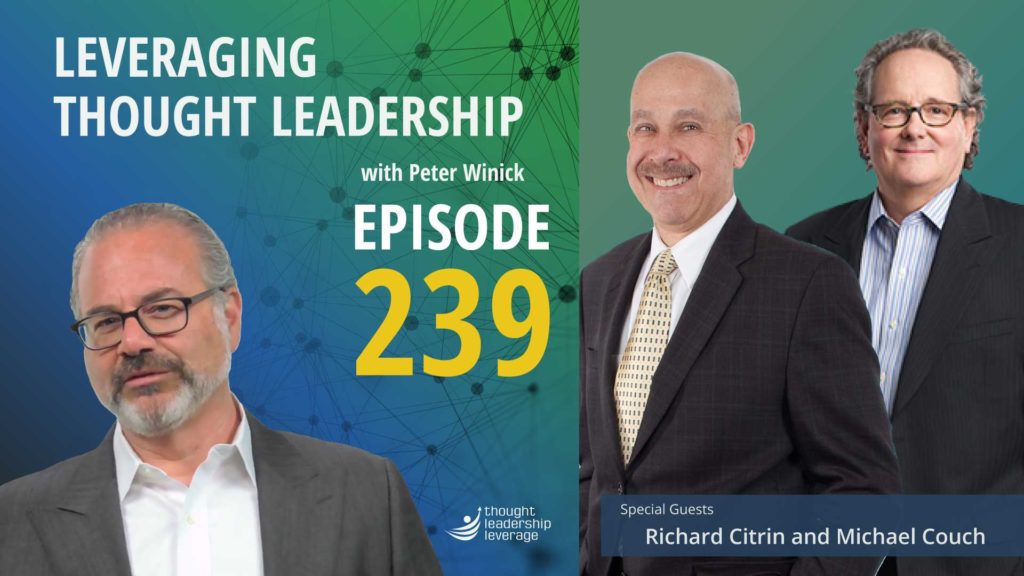
Effective Co-authoring Thought Leadership for Publishing
An interview with Richard Citrin and Michael Couch about thought leadership publishing, how to work in conjunction with a co-author, and how to get your thought leadership book recognized.
Today, we have a special episode with two guests! Richard Citrin is the president of Citrin Consulting, author of The Resilience Advantage, international consultant, leadership coach and organizational psychologist. Michael Couch is the president of Michael Couch and Associates with 30 years of experience as an internal organization effectiveness consultant combined with Business Unit P&L and Operations Management experience. Together, they co-authored the book Strategy Driven Leadership.
Richard and Michael tell us how they came together to write the book to find matching their background and experience was beneficial to their clients and each other. We learn how they divided the writing duties, had multiple publishers interested, and why they chose the publisher they did. During the interview, we explore their goals, expectations, and the effects of getting their book on the market had on their consulting.
Three Key Takeaways from the Interview:
- How thought leaders can come together to co-author a book.
- What thought leaders should ask their publisher before signing with them.
- What thought leaders can expect from a publisher in terms of marketing and sales support.
Transcript
Peter So welcome. Welcome, welcome. this is Peter Winick. I’m the founder and CEO of Thought Leadership Leverage, and you’re joining us on the podcast, which is Leveraging Thought Leadership. Today, we’ve got a first I’ve got two guests at once. I’ve got Richard Citrin and Michael Couch, who are coauthors of Strategy Driven Leadership. They’ve also each done lots of other impressive things and sort of the leadership space, corporate space coaching, consulting, speaking. We’ll get to all that sort of fun stuff. But the common than the current common thread between the two is the they wrote a book together. And it is rare that to how long is the book out now? Several months.
Richard Citrin Yes.
Peter So what are the things and how? Yeah. One of the things in my experience is it’s quite rare that three or four or six months after book is out, the coauthors will agree to come on together and still be friends. So that’s always nice to see. So welcome aboard, guys.
Michael Couch Glad to be here. Thank you.
Peter Cool. So first, let’s talk about the book from the standpoint of at some point the two of you had the light bulb moment and said, let’s write this book and then you had to make some decisions around how to write it and who to publish it with. And then you wrote it. Let’s talk about that for a little bit. How did it how did it come to be? And then some of the decisions that you needed to make.
Michael Couch Yeah, I guess I I’ve caused it all. This is Michael. I had a book in mind for a while, but and had written, you know, chunks of it that are sort of struggling with, you know, how to make it make it the way I wanted to. And then Richard and I started working together on projects specifically related to leadership. And we really uncovered some things and found out that matching up our background and experience was very beneficial for our clients. It worked out very well for us. And so that’s where the idea well, heck, let’s do a book together. And at the time, I was focusing on very broad strategic talent management organization development. And we really narrowed and honed in on stone on leadership and particularly this concept we’ve built around.
Peter So what I ask is, Michael, when you said you were working together, so you were working not on it wasn’t you’re sitting around with a glass of Pinot saying, well, let’s write a book. You’re actually doing client work together. Got to understand that you’re sort of on the same page with certain things. You enjoyed the collaboration, the wage of the things, etc. Then and then from there, the book came sort of as the second. The second thing to do together.
Michael Couch Exactly. There was Pinot Noir involved, but I bet the bet we were working together and wrote some things together, presented together. And then the idea for the book came from there, from the content.
Peter So then you decide to do it and then there’s a whole bunch of stuff, tactical things. Who’s going to be our publisher? How we’re going to write this, how we’re going to distribute? It seemed to give us maybe, Richard, a little bit of a summary of some of the decisions because you’ve written. Is this your first book? Michael? First book? Yes. OK. So, Richard, you’ve written books before.
Richard Citrin So my third book and this is actually a very interesting story, Peter, in that. So we’ve been doing all this work together for really seven or eight years and then. 2018. You know, I kind of pushed Michael to say, let’s go ahead and write a book. Let’s just think twenty eighteen to write the book and we’ll see what comes out of it. Twenty, twenty, nineteen, twenty eighteen to write the book. We’ll see what comes out of it. Will self publish it if we need to. And then we’ll have we’ll have something.
Peter Sure. Sure.
Richard Citrin So know we weren’t any under any great pressure. We divided chapters. We wrote and wrote things we shared, ideas we modified and repeat what.
Peter I want to pause you there though for a minute Richard, because you’ve been around the book block before. So I think but I want to hear it from you. The let’s write this and then we can always self-publish as opposed to let’s go out and pitch it. And now we’ve got sort of the proverbial condor head that says draft one is do with that. Was that part of the logic underneath that?
Richard Citrin You know, that was part of the logic was not to put ourselves under pressure. Let’s just get the material out there, because we thought we had some very novel concepts. And by putting you by not pressuring ourselves, we had.
Peter Right.
Richard Citrin We have fifty thousand words. And we took it to the to the woman here locally in Pittsburgh who was going to publish it for us to read it. And she said, you guys have some great intellectual property. Some great thought leadership. You should definitely think about commercially publishing it. That was November of twenty eighteen.
Peter OK.
Richard Citrin Look, a couple of months to write a book proposal, kind of set it off the first week in January. And by the end of January we’d set up the six publishers by the end of January. Three of them wanted it.
Peter Great. And then when you say publishers, traditional publishers,.
Richard Citrin Traditional publishers. Right.
Peter OK. And there are some. So. So let’s stay here for a minute. There are misconceptions and misunderstandings around self-publishing. Traditional publishers, etc. So to me, at the height of this two primary pieces, there’s sort of the branding, logistics, distribution, there’s the stuff that they do. And then there’s also the business model. So to touch on both of those, if you will, and why you made that choice.
Michael Couch Go ahead, Richard.
Richard Citrin You know why I think the business model of publishing these days. You know, unless you’re Stephen King, you know, you’re grateful they got to publish the book to promote the book. They’re going to help you get the book out there. But, you know, we weren’t looking for an advance or anything of that sort. We were looking for a high quality publisher, which we got. Taylor and Francis would, you know, promote the book for us, give us that kind of publisher reputation and allow us to leverage their publishing capability for other activities like speaking at conventions and conferences, doing podcasts and other kinds of things that that we hope they would do. I think that over. You know, I think there’s less of a chasm now between self-publishing and traditional publishers. But still, you know, traditional publishing is still the gold standard of getting your material out there because, you know, somebody else who’s in the publishing business, who’s reading your material, and that provides a tremendous validation. When we got those letters or e-mails back from those folks say, hey, we like what you guys have, we want to publish it.
Peter Well, I would argue for a moment, yes. That there is some sort of third party validation that what your work is good, right? Because you guys can say that to each other, right? You mean you hire your own fumes or something? Right. But when the prose, if you will, say that, that’s one thing I would say that I’ve experienced on behalf of clients a couple of times where there’s the flip side of that is a lack of a line. Right. So they’ve got 40 books to publish this season. You’re not publishing 40 books to 60. Right. This book is far more important to you than it is to them. And the business model is, listen, they get paid number of units of books times a profit margin per book. You couldn’t care less about that. You have a secondary monetization channel. So that overlap of alignment. I think is just inherently a tense relationship between the author and the publishers. How did how did you guys navigate that?
Michael Couch I think in this case, say having the luxury of several publishers interested, we were able to look at what their approach, talk with some others who would publish with them. You know, Richard had some had some kind of connections there and found some very quick alignment. We had heard horror stories about what it’s gonna be like to work for a publisher and an editor. Quite the opposite in our case. I found it to be a great learning experience, learned a lot. You know, and I think the big benefit is that we had pretty much had the books done. We were we were just right pitching an idea. But that that there help even sense that in terms of ideas around marketing the book and providing the. Sure, that has been very supportive. So we found a pretty quick alignment. You the same thing for you, Richard?
Richard Citrin Yeah. It was I think and I think the other piece is that when you’re when you’re when you have a book that’s been written and is getting published, you’re beginning to think about your next publication. You know, if that’s the direction you want to take and I think, you know, Michael, I still have ideas on where we want to take this leadership model. So I think in that regard, you want to find a way, you want to be working with somebody who is high quality and can help you. And even things, as I mentioned, you know, they pitch. They go to a lot of conferences and dungeons where they set up their materials in the exhibition hall. Sure. Where, you know, we’re going to the same conventions and pitch and presentations at breakout sessions, notes.
Peter That’s a nice piece. So. So if someone’s out there listening and they’re in that process. So one is I want to be clear. You will basically had almost, quote, finished product. I’m sure they did some tough editorial and all that sort of stuff. But let’s say I didn’t take your at the 90th percentile or something. Right. So that’s different than proposal. And then you have to fulfill that proposal because that’s a lot of the tension comes. Oh, I had a different vision. And then we argue about this. And so. So you alleviated some of that. But if somebody is out there today and they’re shopping publishers, be that self or be that traditional. What are two or three questions you would suggest that they might ask of the publisher to see if it’s the right fit for them?
Richard Citrin Well, I think certain you know, I think certainly the most important thing is around the marketing and sales support that you get, you know, with the books that I’ve written most recently of the editorial support is minimal. They can have a copy editor read it, but it’s not as if they’re going to have wasted my experience. They’re going to the editor who’s going to go through and say, you know, this paragraph doesn’t quite match up with something you said in chapter two. Can you clarify that? I mean, they’re not I think that’s not the experience of the editors that that I’ve worked with on a few books I’ve worked with.
Peter So that’s. So what you’re saying is it’s not really a sparring partner from. From an IP perspective, it’s. Does that should be a comma or a typo or, you know, that sentence a little longer, that kind of thing?
Richard Citrin Yeah. You’ll certainly get those corrections, but it’s not going to be you’re not going to challenge your thought leadership.
Peter Yeah. OK.
Richard Citrin Which is good. I mean, now, obviously, you know, if I if we had a bigger brand, you know, if we were writing books like Marshall Goldsmith, maybe they’re well they probably don’t challenge Marshall Goldsmith for that matter. You know, they may push back and say, well, this is a great concept. We think this this idea might work a little better for the market that we’re used to. But certainly from our perspective, having the marketing and business support was important.
Michael Couch And I think the other we also had the opportunity to speak with our assigned publisher editor. You know, before we’ve a before we signed anything. And that was very beneficial just to talk to them, get their understanding of this whole space. And immediately they are editor provided our publisher provide content by suggestions, several different title options in helping direct for that. So I mean, getting that feel right away that there they had it to work with you as a partner. I think that was the other good, good feel for us. And it became obvious in the questioning and the upfront work, you know, and not just some basic basically their guidance and to help how they’re going to handle indexing, how are they going to handle, you know, a block and tackle the block and tackling somebody who can who can provide you, you know? And this editor also had a publisher had a full set of resources that we can go and look at and understand. Before we dove into it.
Peter OK, so now fast forward Magic Happens. The book is out. Right. And given that your goal wasn’t you know, we’re you know, you didn’t come from the delusional camp, but then the book will come out and, you know, royalties will come pouring in and we’ll color Ferrari.
Richard Citrin Is that my opinion? There’s only one color Ferrari. Yeah.
Peter It a trick question, but so what is what were your goals and expectations? And where I’m going with this is I find a lot of people early on or when they’re putting a book out, they’re so focused as they should be on creating great content that they don’t pause and have that sort of strategic perspective of here’s what I’m trying to achieve with this book. Yes, I want to produce something I’m proud of. Yes, I want to produce something that shows our thinking. But these are the doors I want open. Do I want to book this much that new clients that generate this revenue? What were you got where your head around those things?
Michael Couch Well, I think this is where Richard and I were good partners, because I have to say, I got stuck in the academics and the content of the book, The Baby Richard. And through the exposure to the network, like with you and others, you brought they brought the sense of what? Wait a minute. What the. On this and how can we leverage it for, you know, for so that we can eat and have our glasses of Pinot Noir, you know? So I think that was and that was also I was there like I could spend time and focus on the continent’s needed. How that plays out, Richard, can be thinking forward more and also had a much better feel for idea for how we’re going to, you know, the first six months and our launch plan. And that got us connected with some folks to even think about and help on the launch and how we want to leverage it.
Peter So what can you share some of what some of those goals were?
Richard Citrin I think, you know, I think the primary you know, I think liberties back up to make one other comment, which is the work that we’re doing is not going to change the world. So if you want to make sure you have it in a good cut, good in a proper context, I think sometimes people when they write a book, they get so much ownership around their ideas and believe that they can change the world with it that then they get they get hung up on the kind of that that kind of academic goal and can get frustrated when others don’t see the book in the same light that you do. For example, what are the things that you talk about? What are the goals that people? One of the goals that I have is for people to buy the book. That’s a goal you would be amazed at how many people have you know, who I’ve shared about the book, they have said to me, well, can you send me a copy? And I want to say, what would you be willing to buy a copy? All right. This is much to send you a copy, as would be for you to buy a copy five to send it to one hundred people. That becomes expensive to me. So people don’t necessarily want to buy books. The second big goal that I had is I want people to read the book.
Peter So I want to go there because I was just talking to someone recently and it was it was a bit depressing. So I know how hard it is to sell a book. I know the average business book doesn’t sell a thousand do that. I know what it’s like. Right. Then this person got some new data from Amazon that said the average business book that you finally sell your five or seven or whatever thousand copies of your 240 page book, the average reader gets to page 80. So I was like, that’s what we did.
Richard Citrin So we did we did send copies of the book out to No. 50 or whatever. Sure. In our field, friends and colleagues, cordial clients. And what we did was we had a couple of promotional pieces in there. And we will personalize notes in the personalized notes and vary from person to person. I would say or Michael would say, you know, I would suggest you read. You know, if you’ll be willing to read chapters three and five. I think tactic relevance to your business. You find those very interesting.
Peter Maybe you could just tell everyone to read three and five. So it looks like you made a to get some people.
Richard Citrin It was just chapter four. You know, there was one person I said, just read the first chapter therapy. Great. So, you know, I think that that became a bit of a of a theme in terms of that. I think beyond that was clearly around and more of a marketing component to the work. You don’t like what I did. A very thorough current and prospective clients. Clients, we were asked Witchita, 150 or so different clients and how we want to approach them with the book of the ideas that are in the book.
Peter So you said, you know, one of the goals was to sell books. Were there other goals in terms of getting into different markets, getting bigger engagements? Get it? Tell us about the goals as it relates to the impact on the business. Because, you know, authorship is a business models a pretty awful business model, if you like to eat.
Michael Couch Yeah. Well, I think we sold out of our first run of books, so the royalties are just pouring in. But I think they I think they printed maybe 50 copies for some copies. Barbie was more than 50 competitors. More than 50. Yes. It was just. I’m just joking. But the other thing was just to get the exposure, get our name out there. So the other thing that the book immediately did is being able to propose that we speak. Right. Talk about that. And, you know, we’ve been we both have our own sort of networks that we could leverage. But now we’re it opens the doors to new network. So professional associations, verticals that we may not have been involved with before. And the book is a great door opener for that, because not only can you come and speak, but you get to have a book signing or the cachet that comes with you as an author. I felt that difference right away over the many years where I was out, you know, doing, you know, on the speaking circuit. So I think that that exposure, that additional gravity that you generate. Yeah.
Richard Citrin Yeah. An interesting story that I would share about this. And I think you get more credibility from people who don’t know you than people do know you.
Peter Your friends know better how to know your brand and know what you’re about.
Richard Citrin And a friend of mine invited me to go out to California. He was doing some work. You’re saying Hosseini invited me to go out and meet with some of his clients because he knew this book was coming out, three or four of his clients. We had nice meetings. And one person in particular, you know, you got a business meeting you. You say you’ll tell me about your business. He says, no, no, I want to hear your pitch. So I said, why you shouldn’t pitch? I’m usually more of a catcher. I’d like to hear what you’re you know, what your needs are. Just don’t tell me what your pitches. So I walk him through the book an hour. So they just have an hour I’m going to give you. And I thank him afterworld done. And he takes me in and not nothing else is said. Three days later, he says, Name always says, I loved what you have to say. Please send me a proposal based on our conversation.
Peter Well, that’s a win. That’s great.
Richard Citrin Blown away.
Michael Couch Yeah. And not only that, he said it was almost I don’t have the money, but I’m gonna get it. Oh, I think which was a nice, nice effort on Richard’s part. And then he and his team read the book. You know, when they came to our first session, they had questions, markers highlighting, you know, and that was, again, from the guide. So you’re not only. Yeah, here’s the idea, but when you get one to work on this, here’s the sections to read. They’re gonna fit exactly to what we’re doing. And that’s faster and faster and off we go from there.
Peter That’s great. Great. I we start to wrap. Any final words of wisdom or traps to avoid or what else could we learn from your experience because it’s gone well. You guys are still talking. You had a great book. Yeah, I think things are happening.
Richard Citrin I think, you know, from the coauthor of perspective, you know, working with people who like you like. So, Michael, I have a good friendship. Our. You know, we get together, the four of us. We enjoy each other. Mike and I are very complementary. One another. So we’re he’s strong. I’m weak. Where, Armstrong? He’s weak. No, they’re probably not weak.
Michael Couch He’s weak.
Peter There’s a work styles that level usually.
Richard Citrin Well, together, I think for somebody who’s going to do a work together, that’s important. I think the other piece around your work and thought leadership, Peter, is that if you have an idea, go with it. No, don’t think somebody else. You know why? Thought then other people are doing leadership books. This book really has a unique approach that’s really, really helpful for organizations that if you if you have an idea, build it and let it grow and you’ll be amazed at where it is. That’s what they want.
Peter And to that point, I think for some, one of the benefits either intended or a secondary benefit of writing a book is it’s a forcing mechanism to get you to crystallize your thinking in a tight and clear way. So the curse of the expert is you can get in the room and do stuff with this, but it has to be clear and concise and comprehensible in a book. So somebody can pick it up or 20 by book to open up. A-ha. I get it. And that’s not so easy now.
Michael Couch And I think that’s one of the biggest things I learned out of the process is just how beneficial the process at going through it was and having good at having good feedback and be willing to take it. Yeah, I think I learned from it, particularly Richard or our book coach or from the editor you got. Yeah, you got to listen and it’s snapshot of your thinking and actually ends up adding to your up to your perspective and to your thought leadership. So the thoughts that thought leadership continues, we keep adding to it. And that’s maybe where the next book is gonna come from. Cool. But that was a great learning for me.
Peter Well, it’s been great. I appreciate your time. I appreciate you sharing your story and your journey with us. And I wish all the best.
Michael Couch Thank you, Peter. Great being here.
Peter Thanks, guys.
Comments (1)
Comments are closed.


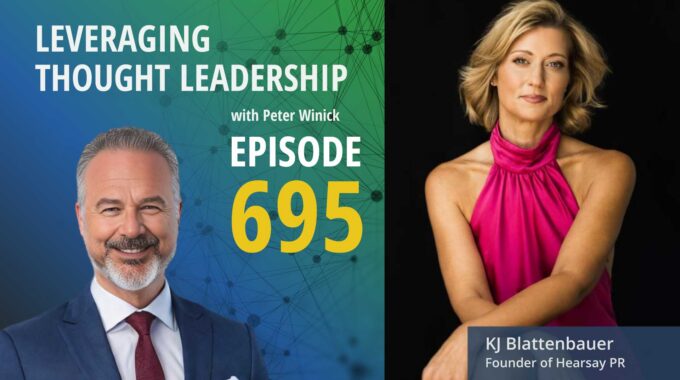
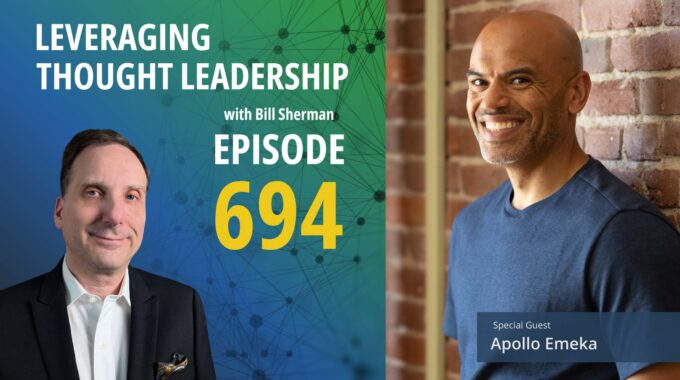
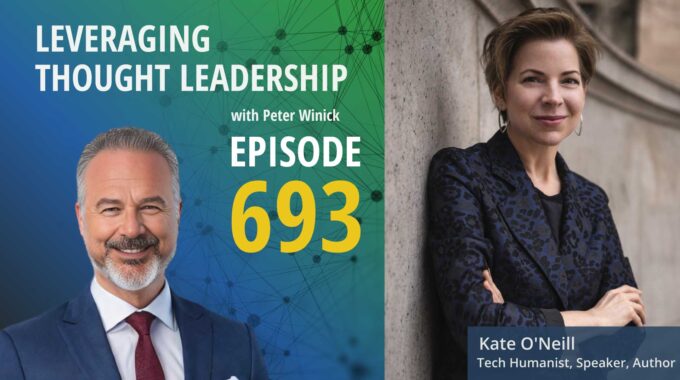
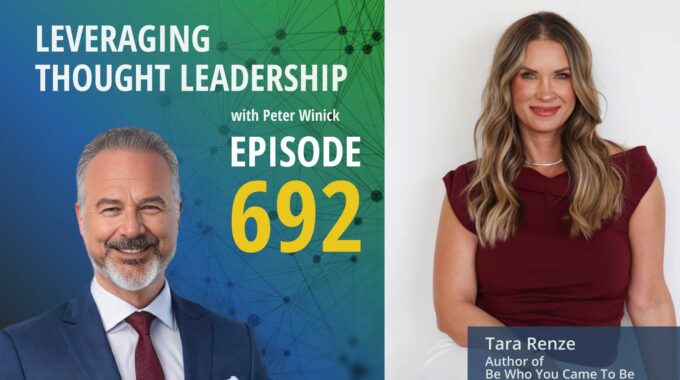
I really enjoyed this one Peter. Particularly liked the idea of giving copies of a business book away to people in your network but with a personalised note to direct them to specific chapters that would be relevant to them. What a great way to engage your audience!